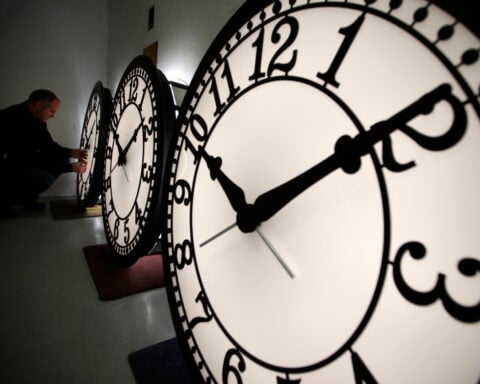The proliferation of dating apps and social media has entirely transformed the quest for love in the 21st century. With a tap you can access seemingly endless romantic possibilities tailored to your every preference. But beware - having too many options can backfire for the lonely heart.
Enter the rise of "relationshopping" - the habit of endlessly swiping through potential matches like items in a catalog, seeking the ideal romantic product. This mentality causes singles to constantly wonder if someone better awaits in their queue of virtual admirers.
According to dating coaches, the assumption that a perfect soulmate exists perpetually distracts people from forging actual connections. And social media fuels relationshopping tendencies by depicting filtered relationship highlights reel versions of everyone else coupling happily ever after.
"You're setting yourself up never to feel fulfilled if you have a shopping list mentality," warns coach Blaine Anderson. "It's hard to know when to stop if your end goal stays unclear."
This dilemma long predates apps. However, their filtering functions and infinite scroll design seem tailored to feed relationshopping tendencies. Sites allow sorting prospects by detailed attributes like height, politics, or astrological sign - hard wiring a search process resembling online shopping.
Sociologists speculate this promotes evaluating partners as products rather than humans with flaws. Users subconsciously tally check marked traits on their wish list more than emotional compatibility cues invisible via profile.
"Dating sites put people in a mentality of seeking qualities in others like checking off a grocery list," observes analyst Dr. Helen Fisher. "This commoditizes the search for the perfect match into box checking."
Additionally, apps automatically funnel fresh options to users daily. This endlessly restocks the romantic inventory, rendering commitment elusive. Why settle on ITEM A when ITEM B with more desirable features could arrive tomorrow?
Psychologists like Dr. Carla Manly caution this impulse sabotages relationships before they form. "If we view people as disposable or interchangeable, it inevitably hampers intimacy," she notes. "You must see a new partner's humanity rather than reducing them to a set of on-paper traits."
Manly recommends that singles shift focus from what a prospect offers to sharing who you are. "Ask thoughtful questions. Express your dreams, values and interests," she suggests. This lifts the dynamic from detached shopping comparisons to an emotional exchange.
Of course, relationshopping predates the digital era, though technology accelerates its grip. Even without apps, envisioning an ideal lover's qualifications restricts romantic growth, analysts caution.
"It's like having a shopping list of what Prince Charming must have to get your love. But this often mis-aligns with actual relationship needs," says coach Damona Hoffman.
Relationshoppers may picture requiring a towering 6-foot-4 heartthrob who's a millionaire. But surface wants eclipse core needs like compassion, security, adventure or humor that truly sustain relationships through life's changes.
To short-circuit relationshopping where possible, experts advise singles first outline their deal breaker "must-haves" versus "nice to have" traits in a partner. Focus only on truly essential qualities poised to remain priorities over the long-haul.
Coach Logan Ury reminds people that the perfect person exists only in rom-coms. "Expecting a real-life partner will inevitably fall short of ideals. Focus instead on shared chemistry and values," she counsels.
Experts also encourage relationshoppers to ask why their supposedly ironclad dating requirements exist. Often these stem less from personal needs than pop culture fantasies or family pressures blindly absorbed.
"Question if societal messages shape your wish list more than your authentic needs," says Hoffman. "True fulfillment requires self-knowledge."
Furthermore, therapists like Dr. Wyatt Fisher recommend relationshoppers pause online searches once conversing with a few promising matches. Don't continually stockpile options to avoid missing meaningful connections in pursuit of hypothetical perfection.
Improving one's dating skills also minimizes relationshopping's allure. "Work on flirting, conversation techniques and better presenting yourself both online and in-person," Anderson advises. Becoming a more engaging, empathetic date makes you more appealing regardless of superficial traits.
At its core, relationshopping appears fueled by a belief in romantic scarcity - that odds of finding "the One" are minuscule. But happiness research reveals otherwise.
Studies by Harvard sociologist Dr. Mark Regnerus found that 50% of people who married were satisfied with their choice of mate by the fifth year of marriage. And marital satisfaction steadily improved in following decades.
"Assuming your soulmate is a needle in a haystack prevents enjoying meaningful relationships unfolding in real life," Regnerus concludes. "There are likely many you could build abiding love with through open-hardheartedness rather than box-checking."
The takeaway? Avoid relationshopping by getting radically honest with yourself about desires for an actual relationship versus fantasies. Then give compatible matches a fair chance to develop, resisting the urge to always assume something better awaits in the wings.
True love manifests by jointly building it with patience, not browsing store shelves. So avoid the trap of seeking human perfection. Focus instead on emotional bonds that allow both people to feel seen and valued as they are

 Trump has begun another trade war. Here's a timeline of how we got here
Trump has begun another trade war. Here's a timeline of how we got here
 Canada's leader laments lost friendship with US in town that sheltered stranded Americans after 9/11
Canada's leader laments lost friendship with US in town that sheltered stranded Americans after 9/11
 Chinese EV giant BYD's fourth-quarter profit leaps 73%
Chinese EV giant BYD's fourth-quarter profit leaps 73%
 You're an American in another land? Prepare to talk about the why and how of Trump 2.0
You're an American in another land? Prepare to talk about the why and how of Trump 2.0
 Chalk talk: Star power, top teams and No. 5 seeds headline the women's March Madness Sweet 16
Chalk talk: Star power, top teams and No. 5 seeds headline the women's March Madness Sweet 16
 Purdue returns to Sweet 16 with 76-62 win over McNeese in March Madness
Purdue returns to Sweet 16 with 76-62 win over McNeese in March Madness








